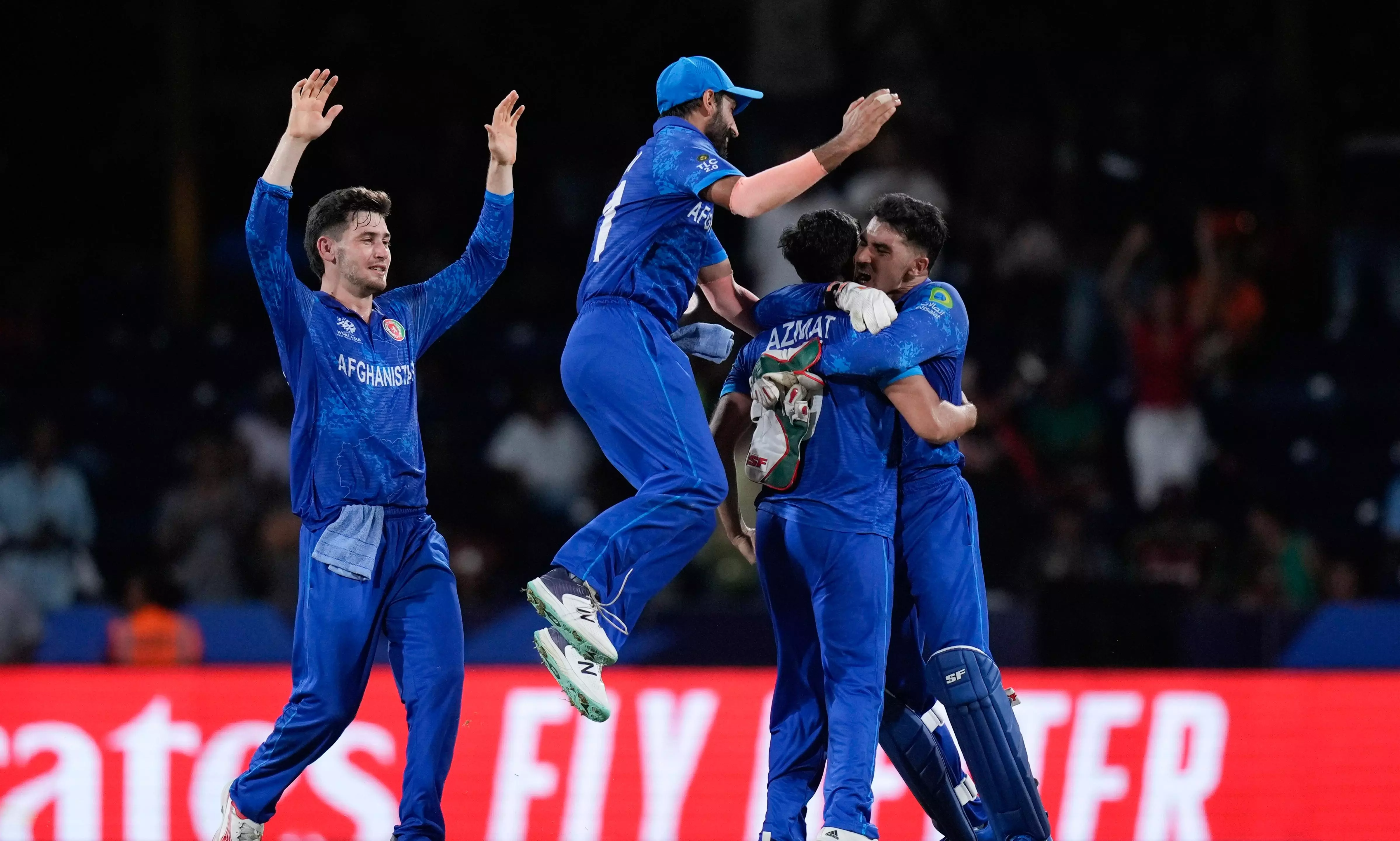
- Home
- India
- World
- Premium
- THE FEDERAL SPECIAL
- Analysis
- States
- Perspective
- Videos
- Sports
- Education
- Entertainment
- Elections
- Features
- Health
- Business
- Series
- In memoriam: Sheikh Mujibur Rahman
- Bishnoi's Men
- NEET TANGLE
- Economy Series
- Earth Day
- Kashmir’s Frozen Turbulence
- India@75
- The legend of Ramjanmabhoomi
- Liberalisation@30
- How to tame a dragon
- Celebrating biodiversity
- Farm Matters
- 50 days of solitude
- Bringing Migrants Home
- Budget 2020
- Jharkhand Votes
- The Federal Investigates
- The Federal Impact
- Vanishing Sand
- Gandhi @ 150
- Andhra Today
- Field report
- Operation Gulmarg
- Pandemic @1 Mn in India
- The Federal Year-End
- The Zero Year
- Science
- Brand studio
- Newsletter
- Elections 2024
- Events
- Home
- IndiaIndia
- World
- Analysis
- StatesStates
- PerspectivePerspective
- VideosVideos
- Sports
- Education
- Entertainment
- ElectionsElections
- Features
- Health
- BusinessBusiness
- Premium
- Loading...
Premium - Events

Now that Taliban is seeing what cricket can do to make Afghanistan acceptable worldwide, can one dare dream the Islamic regime will ease its restrictive laws?
For Afghanistan, a beleaguered country whose government is yet to be recognised by the world, its entry into the T20 semi-finals is not merely a cricketing achievement.
The so-called Blue Tigers may have willy-nilly opened the path for the revocation of their country’s 'outcast' status.
Treated with disdain
Nearly three years after their return to power on August 15, 2021, the Taliban government has been treated with disdain by the rest of the world for its ultra-orthodox policies, including banishing women from education, employment and sports.
Even the Afghan cricket team that is now revelling in its famous victories, the latest being its entry into the T20 cricket semi-final in the Americas and its incredible win over heavyweights Australia, is operating in the twilight zone of world cricket.
The International Cricket Council (ICC), for instance, is yet to recognise the Taliban. This is because of the Kabul dispensation’s ban on women’s cricket in the overall context of restrictions on women.
What this means is that the Afghan national flag on display and the national anthem being played at the beginning of each of their matches are that of the pre-Taliban period.
Taliban's terms
The Taliban government reportedly requested that the national anthem be played without music but that has been ignored.
Two of the top members of the Afghanistan team do not live in their country. Captain Rashid Khan, and all-rounder Mohammed Nabi stay in Dubai.
In the Taliban’s first stint from the mid-1990s to 2001, cricket, which was then a fledgling sport, was banned. Cricket came into its own in Afghanistan during the period under US occupation, with a little help from Pakistan initially and later from India.
In fact, cricket was introduced to Afghans in the refugee camps of Pakistan during the Soviet occupation from 1979-1990. The game proved popular among the Afghans.
Cricket-politics nexus
With Pakistan incubating the Taliban, cricket got intertwined with politics. The stage was set for cricket’s development when a US-led international force occupied Afghanistan and dethroned Taliban from power in the aftermath of the 9/11 attacks on New York and Washington DC.
By the time the Taliban returned to power in 2021, Afghan cricket was fairly well entrenched. By 2017, Afghanistan was allowed to enter the ICC and recognised as a full-fledged cricket-playing country.
It had managed a couple of worthy wins and many individual cricketers like Rashid Khan stamped their talent on the sport.
For an Islamic grouping that was ruthless in enforcing its orthodoxy, it became difficult for the Taliban 2.0 to stamp out the sport. Not just that, the Taliban helplessly saw many among its own supporters and officials following cricket and enjoying it immensely.
Possible reform
In other words, cricket managed to just about prise open the Taliban’s door to a possible reform. The Islamist government in Kabul has reluctantly looked the other way as an older national anthem and flag have adorned the Afghan team at the beginning of their fixtures.
The entire country is out on the streets celebrating their cricket team’s entry into the semi-final, so soon after the cathartic win over Australia less than a week earlier.
No way can the Taliban control the outburst and spontaneity of the crowds that have poured out into the streets of Afghanistan.
For the country itself, this is the first time since the Soviet occupation in end-1979 that there has been a reason for celebration across the board. Reports from within the country quote Afghans saying that the game of cricket is momentarily making them forget the years of conflict, suffering, bloodshed and misery.
Cricket and diplomacy
The heroics on the cricket field are in sync with other parallel developments in the area of diplomacy. China recently recognised the Taliban ambassador to Beijing – the first country to do so.
India, in January this year, participated in a meeting in Kabul chaired by the Afghan foreign minister Amir Khan Muttaqi.
Earlier, the Afghan embassy in Delhi, staffed by the pre-Taliban dispensation, was shut ostensibly in deference to the Taliban government’s wishes. India’s embassy in Kabul has continued to function right through the change of guard in Afghanistan. However, neither New Delhi nor Beijing has formally recognised the Taliban government.
De facto ambassador
For the Kabul regime, the Afghanistan cricket team’s achievement is proving to be a de facto ambassador that may well soften the big Western powers still cut up over the humiliating withdrawal of US-led forces in 2021.
While it may be naive to assume that cricket has the power to change the fundamentals of the Taliban’s theocratic mindset, what the game can do is allow for an opening up of conversation between the Taliban and other countries, especially in the Asian region.
The Narendra Modi government, for all its perceived anti-Muslim rhetoric within India, has been particularly soft in its dealing with the Taliban government. From a geo-political perspective, this makes sense, as otherwise Afghanistan can firmly get close to the Pakistan-China axis, to New Delhi’s disadvantage.
Pakistan's overtures
Furthermore, the Taliban 2.0 is not particularly receptive to Islamabad’s overtures as it was when it came to power first in the mid-1990s. Pakistan, under US pressure, had to act against the Taliban in exile between 2001-2021 and this permanently scarred their relationship.
India, which was a persona non grata during Taliban 1.0, is now welcome in Kabul.
Again, cricket has played a major role in India’s rehabilitation within the Taliban perspective. For example, several of the Afghan national team members are regulars in the IPL. Some, like Rashid Khan, Rahmanullah Gurbaz and Naveen ul-Haq, are local celebrities and in great demand from the various franchises.
India has provided its cricket grounds for the Afghan team to practise besides related infrastructural help.
Economic benefits
Now that the Taliban is seeing what cricket can do to make Afghanistan acceptable worldwide, and the economic benefits that can accrue, it is well within the realm of possibility that the Islamic regime could ease its restrictive laws.
And, who knows – may even bring in a more moderate and tolerable government.
If that happens, cricket, clearly, is to thank for.


